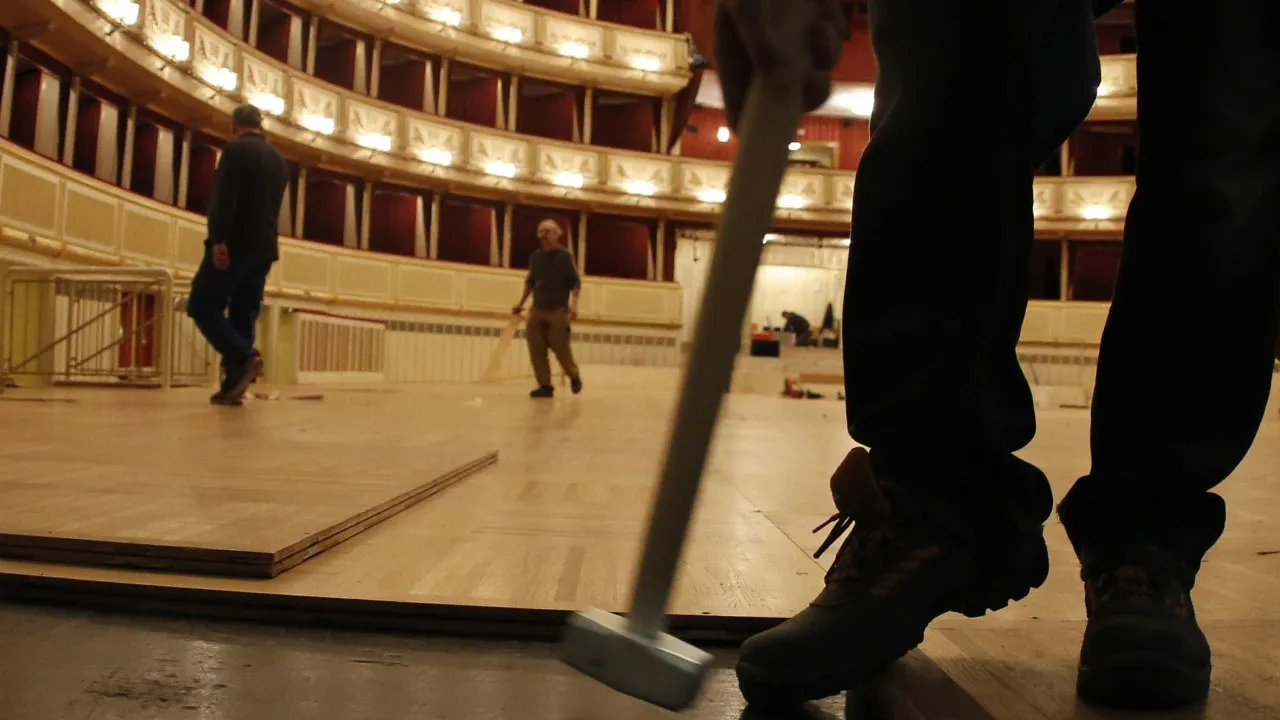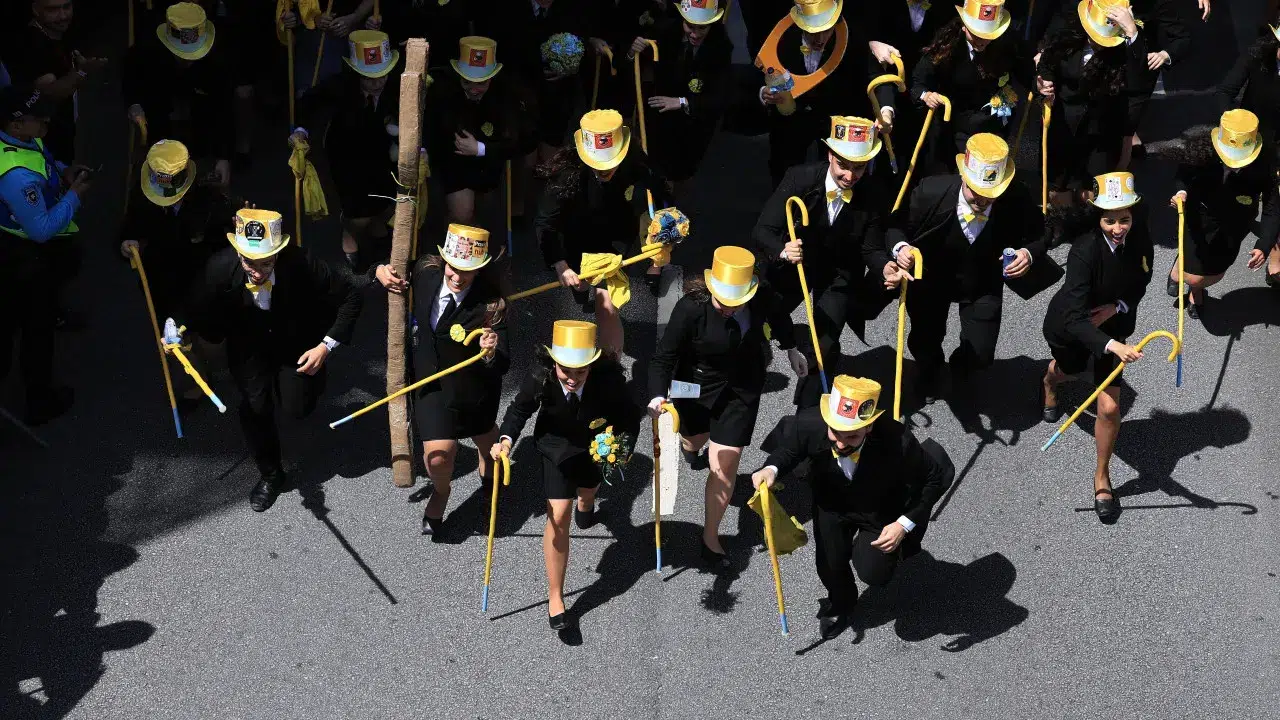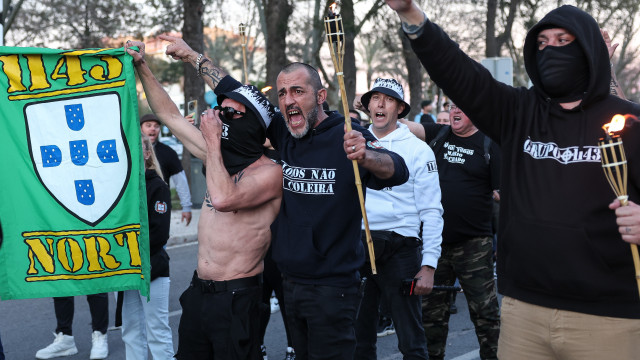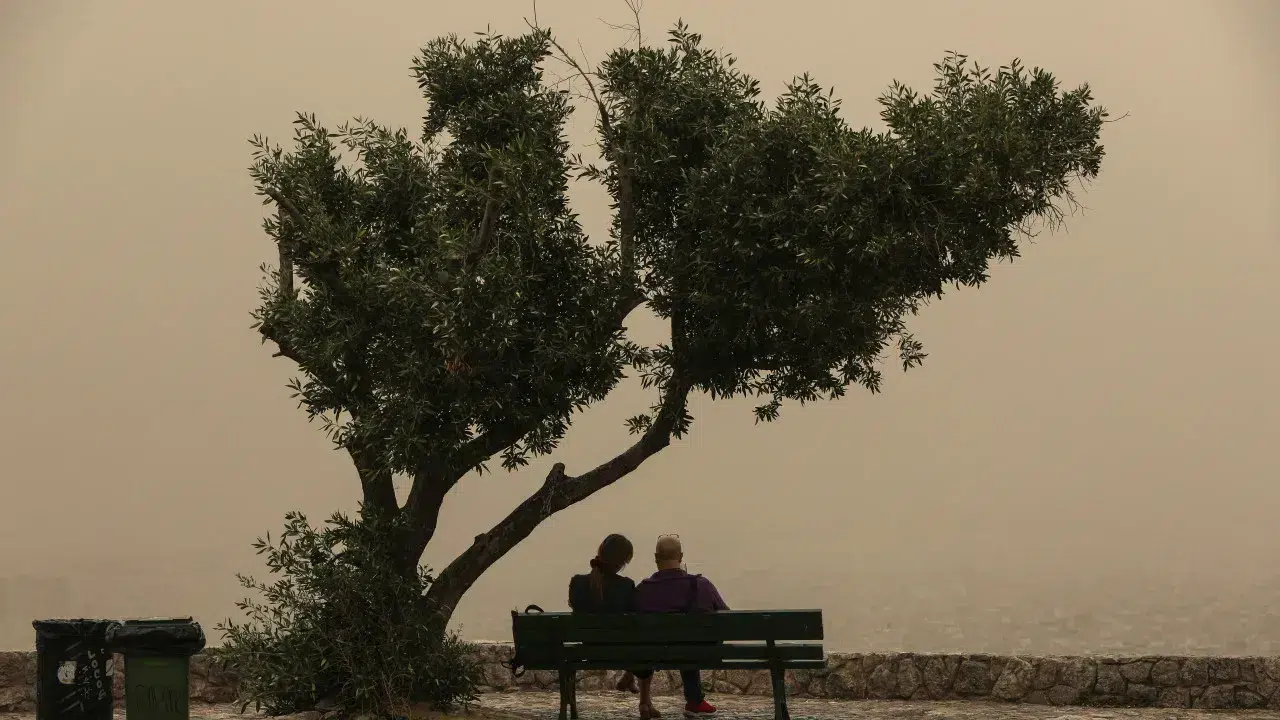
“A concert with four musicians who usually play rock or jazz, an experience I’ve never had, and it is somewhat a summary of my 50 years of work,” stated Luís Madureira in an interview.
Lévi Martins (musical direction, vocals, and guitar), Pedro Branco (guitar), Diogo Arranja (percussion), and António Madureira Costa (bass) will accompany Luís Madureira.
‘Modéstia à Parte’ will be on stage for five days, from Wednesday until next Sunday, at S. Luiz – Teatro Municipal.
This time, Luís Madureira chose a lighter repertoire, although a significant part of his career has been dedicated to classical chamber song repertoires, such as the German ‘lied’ and the French ‘mélodie’.
Madureira admitted that his choice was influenced by the “demand” he places on himself, due to “not having the same vocal availability” as in previous moments of his career.
The lineup for ‘Modéstia à Parte’ includes several songs by the duo Michel Legrand and Boris Vian, songs from the repertoire of Charles Aznavour, Friedrich Hollaender, and Kurt Weil, with text by Brecht, as well as the song ‘As Time Goes By’ by Herman Hupfeld, another by Joseph Kosma and Jacques Prévert, ‘Les Feuilles mortes,’ and a song by Barbara.
These are some of his favorite authors, in “an attempt to reach a different audience” from that of ‘lied’ and ‘mélodie’, and classical music, which he also performed.
The tenor explained that during the concert, there will be discussions about his professional life, and texts already published about him will be read, along with some of the interviews he has given. He will also perform some songs he has sung, performing alongside actor João Jacinto.
Luís Madureira recognized having developed a “very diversified career,” highlighting his performance as Domenico Scarlatti in the opera ‘Blimunda’ by Azio Corghi, based on the novel ‘Memorial do Convento’ by José Saramago, presented at the Teatro Nacional de S. Carlos. A ‘role’ that gave him “enormous pleasure.”
From his 50-year career, the tenor also recalled the “many shows” he did with director Ricardo Pais, who introduced him to dramaturgy, his work with Italian director Giorgio Corsetti, and further collaborations with Nuno Carinhas, Fernanda Lapa, and Sandra Faleiro.
“The most important performances I did were with these directors,” he said, also adding Rogério de Carvalho to the list.
Reflecting on his career, he stated, “The richest period of my life was a time when there were special projects for me, or the creation of first works. There was more funding than there is now, in a time of great difficulties. But from the interpreters’ perspective, I think education has improved a lot at all levels, which is good. Now, [as for] professional opportunities, that is more problematic. The funding is limited.”
The “richest” period of his professional life corresponds to the 1980s and 1990s, he assured. He notes his work with composer Constança Capdeville, mentioning “the creation and multiple experimentation, where various stage specialties were associated, such as dance and interpretation as an actor and singer, and the works created for the Europalia art festival in Brussels in 1991 and Expo’98 in Lisbon.”
Besides the directors, Luís Madureira also has good memories of conductor Michel Corboz, recalling his career start in the Gulbenkian Choir and the invitation he received to perform with the Lausanne Vocal and Instrumental Ensemble.
Conductors Fernando Eldoro, who significantly launched his singing career, and João Paulo Santos, with whom he worked on “quite difficult works, such as ‘Façade’ by William Walton,” in a production by Luís Miguel Cintra, are also fondly remembered by Luís Madureira.
The singer said that, in a way, in this recital, ‘Modéstia à Parte’, he returns to the early times, “when the most heard music around him was French.” Hence the choices of Barbara, Aznavour, and the compositions of Michel Legrand.
“I only sing texts by good writers,” he assures, citing Boris Vian as an example, an author whose songs he recorded in the early 1990s, encouraged by José Adelino Tacanho, then director of the Capuchos Music Festival – the festival “where Portuguese performers began singing a genre of music that articulated with classical music.”
Referring to this period, he said, “There was a need and a willingness of programmers for the audience to increase. But over time, except for the Gulbenkian Foundation, and some times at Teatro de S. Carlos, the classical recital of song and piano, of ‘lieder’ and ‘mélodie’, has become less present in programming, and I think the audience today is much less familiar with this repertoire.”
Regarding musical production, the tenor considers that “there is immense quality among performers and authors.”
The recital ‘Modéstia à Parte’, a title that contains “some irony,” as he acknowledged, was created under the Companhia Mascarenhas Martins at Casa da Música Jorge Peixinho, Montijo, with which he has been collaborating for several years.
“I love working with them. They have a line of thought that pleases me, they are very rigorous, and mostly, they create their own texts,” he said.
The company, based in Montijo, is directed by Lévi Martins and Maria Mascarenhas.
Luís Madureira, aged 70, completed his Singing course at the National Conservatory under Joana Silva in the early 1970s and pursued further studies, supported by a scholarship from the State Secretary of Culture, in London from 1979 to 1980 with Peter Harrison. He attended advanced courses with Max von Egmond at the Casa de Mateus Foundation and with Kurt Equiluz at the Calouste Gulbenkian Foundation.
He has performed as a soloist in both Portugal and abroad, in recitals and opera casts. He established a long partnership with pianist Jeff Cohen for ‘lied’ and ‘mélodie’ programs.
Throughout his career, he explored an interdisciplinary approach to performances and was one of the founders of the group Colec Viva (1985-1992), directed by composer Constança Capdeville (1937-1992). As an actor, he worked in theater and cinema with filmmakers like Monique Rutler, Manoel de Oliveira, Ruy Guerra, and directors like Carlos Quevedo, Filipe La Féria, Luís Miguel Cintra, Cornelia Geiser, besides Ricardo Pais, Nuno Carinhas, and others.
An eclectic career, as he recognized, which also extended to music programming, as occurred during Faro – National Culture Capital (2005), and artistic direction, including the Estúdio de Ópera do Porto da Casa da Música, which he assumed in 2001.
Teaching has also been a part of the tenor’s career, having taught at the Instituto Gregoriano and the Escola Superior de Música de Lisboa, from which he is currently retired. Without upcoming projects, such as a new album, Luís Madureira offers private singing lessons.
The recital ‘Modéstia à Parte’ showcases his characteristic of “wanting to experiment with very different things throughout his life,” highlighting the “great work of adaptation.”
“I never imagined giving a concert with this type of musicians,” he concluded.




